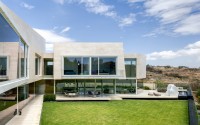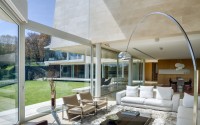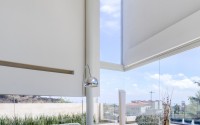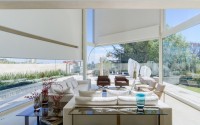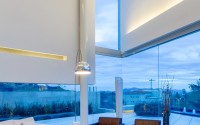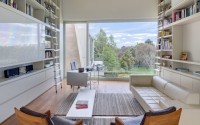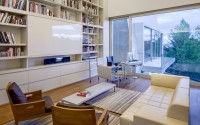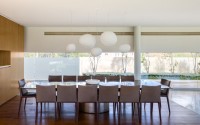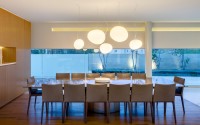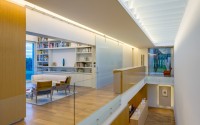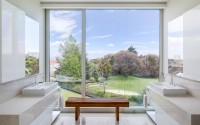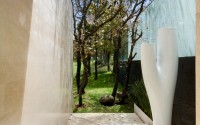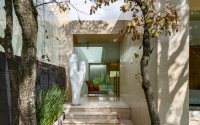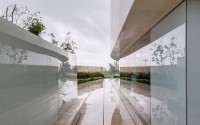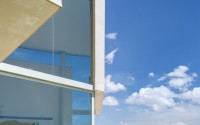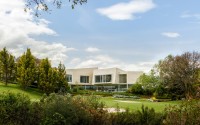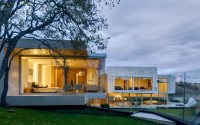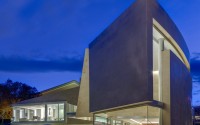Country Club Residence by Migdal Arquitectos
Located in Mexico City, Mexico, this luxurious Country Club Residence was designed by Migdal Arquitectos.

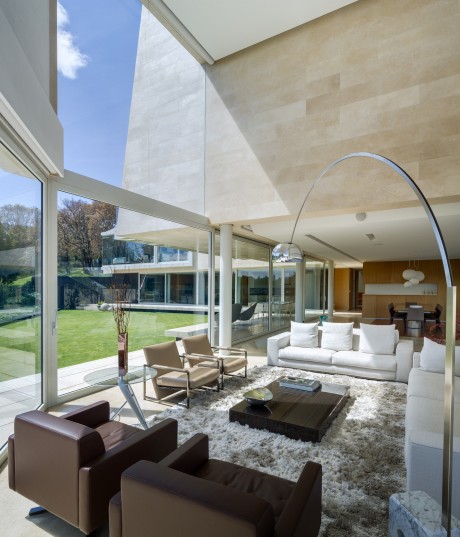
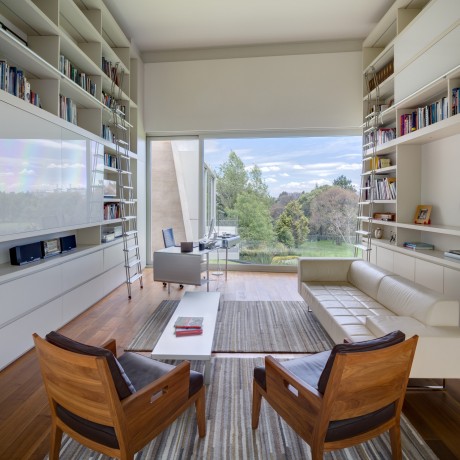
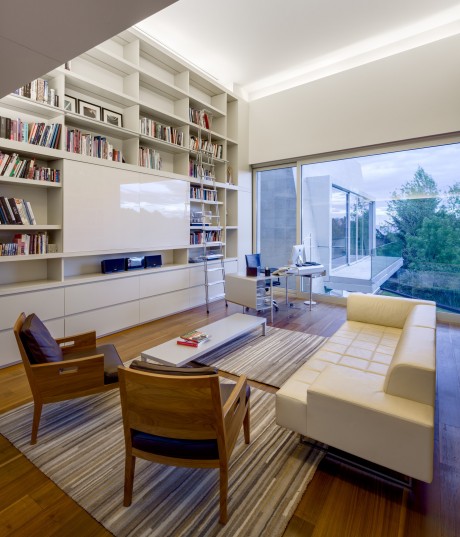
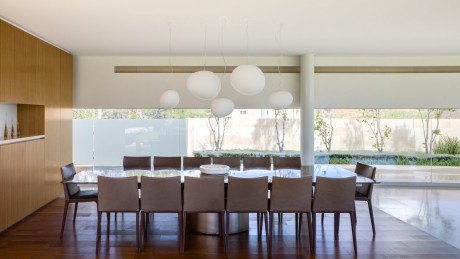
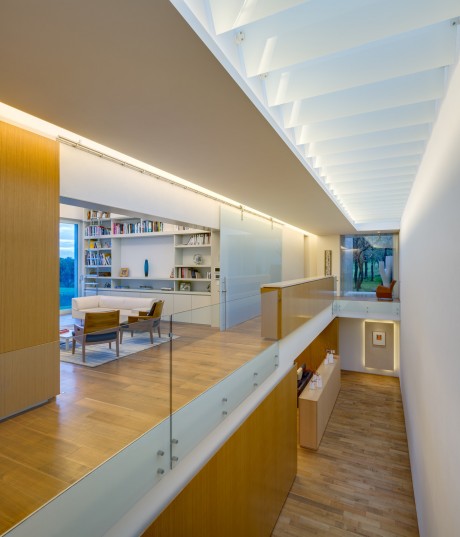
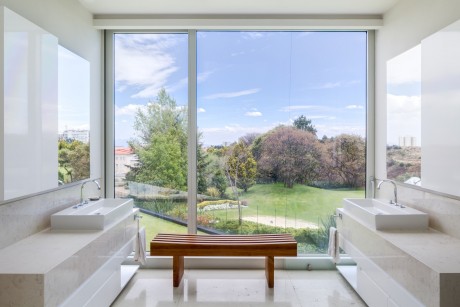
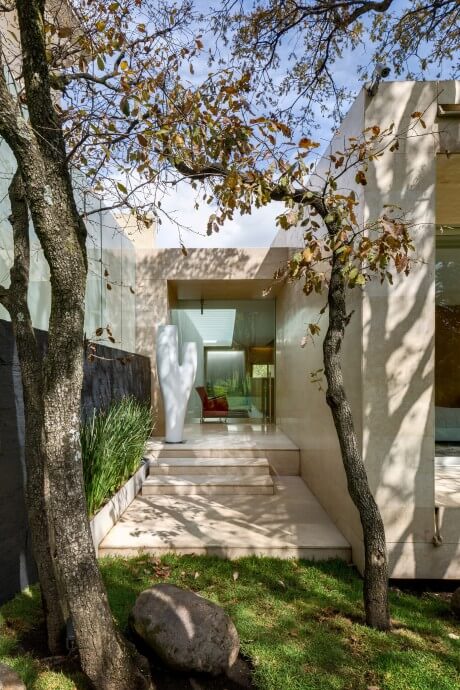
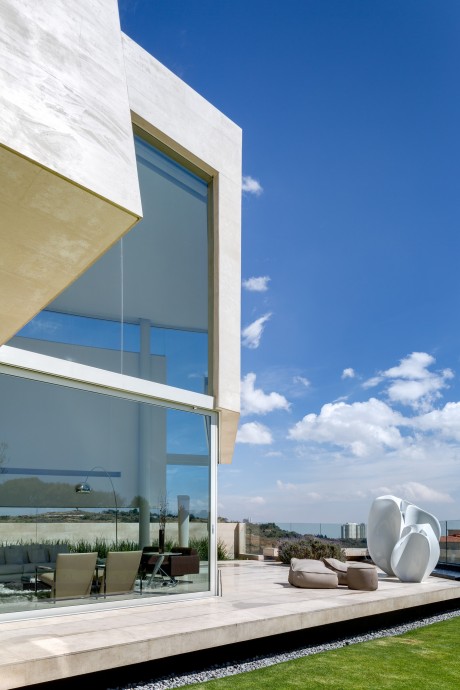
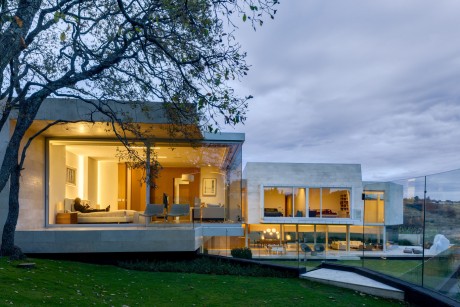
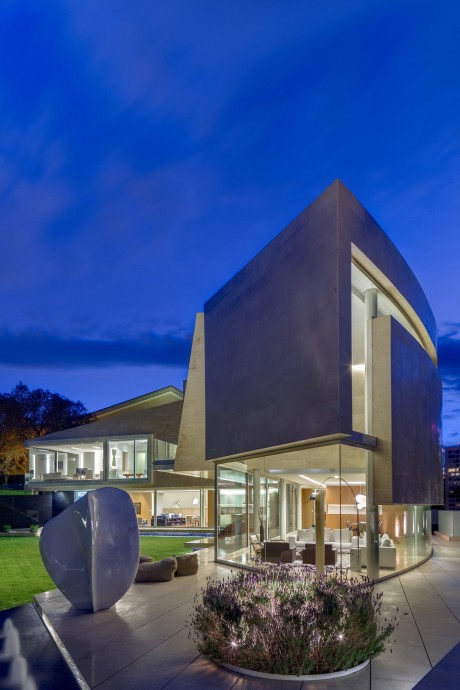
Description by Migdal Arquitectos
The residence “lives” to a golf course in Mexico City. The project, while considering its views, its principal south-facing orientation and the morphology of the land, is created L-shaped, permitting all spaces to face the “great garden”, while creating a continuity of the exclusive green area towards the greens of the golf course, whereby the golf course becomes the most important garden of the residence.
Given the topography of the land, which rises up from the street, 3 layers were planned: the services basement, seen from outside as a contemporary “podium” made of black stone that supports the entire residence. The second layer is the public, transparent and light space with direct communication towards the main garden. The third layer, supported by slender metal columns, accommodates the private area. It speaks volumes, representing the spaces found farther inside. The third layer connects with the “tree garden”, which preserves all the existing nature of the site.
An “interior street” is created, integrating the two upper levels; this “street” is the central atrium bathed in natural light thanks to a series of translucid grass mullions suspended from the ceiling. The finishing touch at the end of this great “street” takes effect in the upper part with the nature of the “tree garden”.
Sunlight was fundamental in the conception of the project, achieving the natural creation of large illuminated areas for most of the day thanks to the glass windows and the ceiling perforations. The sun lighting is controlled through overhangs that cast shadows, providing a respite from the sun.
The transparency of the residence creates an inverse effect; in the day the residence is bathed in natural light and at night looks just like a lamp, emphasizing the volumes and planes that float over the grass.
The artificial light of the residence is emitted from crevices in soffits. Some lights hang and others are pedestal lamps, both with sculpturesque designs, specifically chosen for each space.
The furnishings, considering their function and esthetics, have a specific place for each area. Some can be rotated in order to integrate or separate spaces as passing elements or visual elements.
Photography by Rafael Gamo
- by Matt Watts